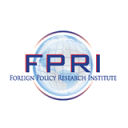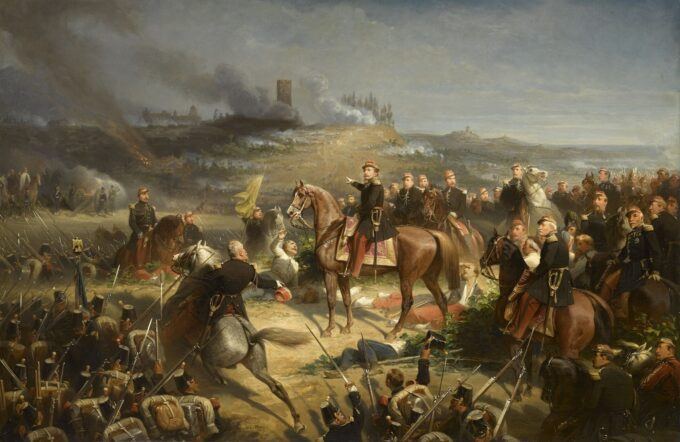By Michael Walsh
(FPRI) — Over the last few months, a new discourse has emerged on Western Sahara. Following the Polisario attack on Smara, novel concerns have been raised that the Polisario Front and its state supporters (e.g., Algeria and South Africa) are undermining US interests. Some analysts have argued that recent events demand the designation of the Polisario Front as a terrorist organization and Algeria as a state sponsor of terrorism. These claims are strongly disputed by the Polisario Front and its supporters.
To make sense of these developments, it is important to understand what is happening behind the scenes in US-Algeria and US-South Africa relations. When viewed through that lens, new competitive reasons come into focus for the US government and its allies to support the consolidation of Moroccan sovereignty over Western Sahara. These contextual shifts not only threaten the existence of the Polisario Front and the independence of the Sahrawi people: They could create tensions in US-Algeria and US-South Africa relations that other state actors, like China, Iran, or Russia, could exploit. At the same time, there are also contextual shifts pulling in the opposite direction. The most important is a recent improvement in US-Algeria relations. This is being spearheaded by the United States Embassy Algiers and the National Security Council.
The White House recognizes that this presents a challenging strategic landscape. It accepts that there is a need for a change in the status quo and views the intensification of the United Nations political process in the Western Sahara as the best possible option for trying to do so. This is despite the fact that it will create tensions in US-Morocco relations.
Background
There have been significant shifts in the regional context of the longstanding conflict between Morocco and the Polisario Front, all of which have increased concerns in Washington. First, there is a widespread perception that Russia’s relations with Algeria and South Africa have grown stronger since the invasion of Ukraine. Combined with the expansion of BRICS’s framework, this has raised questions about the shared preference of the two countries for a new world order. There are concerns about the role that both governments are believed to have played in the suspension of Israel’s observer status at the African Union and their relations with Iran and Palestinian militant groups, especially in the aftermath of the Hamas attack on Israel. In Western Sahara, the Polisario attack on Smara has heightened concerns about their sponsorship of the Polisario Front in an escalating conflict with an American ally that is resulting in civilian casualties on both sides.
As a consequence, there is a perception among some analysts that Algeria and South Africa are undermining US interests. The White House is working hard to change those perceptions. US Embassy Algiers sees cracks in the strategic relationship between Algeria and Russia that it wishes to exploit. It also recognizes the risk of pushing Algiers closer to China, Iran, and Russia if it overtly supports the consolidation of Moroccan sovereignty over Western Sahara. The Biden Administration is therefore searching for an approach that maximizes U.S. interests. The Moroccan government fears that will come at the expense of its own interests.
Assessment of Key Players
For the Polisario Front, this shift in the background context carries important implications for the future of their armed struggle for an independent state in Western Sahara. Among members of Congress, there has at times been a desire to impose costs on Algeria and South Africa for undermining US regional interests. For Algeria and South Africa, Sahrawi nationalism provides a valuable platform to demonstrate global leadership on anti-colonialism and anti-apartheid politics.
For the US government, consolidating Moroccan sovereignty would deprive Algeria and South Africa of a foreign policy priority. However, it would also risk pushing Algiers and Pretoria toward major power competitors. Consequently, the Biden Administration is trying to resist the pressure to use Western Sahara as a platform to impose consequences on Algeria and South Africa.
Policy Options
For Washington, there exists a non-exclusive set of policy interventions that might prove useful in the pursuit of the consolidation of Moroccan sovereignty over Western Sahara. It could designate the Polisario Front as a terrorist organization, and then consider state-sponsor designations for Algeria and South Africa. The United States and its allies could increase intelligence sharing regarding the Polisario Front with Morocco, and transfer more advanced counter-insurgency capabilities to them. The US government could pressure African partner countries to withdraw diplomatic recognition of the Sahrawi Democratic Republic. It could even terminate South Africa’s beneficiary status under the African Growth and Opportunity Act.
Beltway analysts have already expressed support for the designation of the Polisario Front as a terrorist organization in the aftermath of the Hamas and Smara attacks. This stands in sharp contrast to the Biden administration’s preferred approach: the intensification of the United Nations political process “to achieve an enduring and dignified solution” in Western Sahara.
Americans Calculations
For the Biden administration, decision-making on Western Sahara requires the careful consideration of political realities that pull in multiple directions. For example, the consolidation of Moroccan sovereignty over Western Sahara would advance the perceived national interests of Morocco and Israel, and a large number of Americans believe that the US government “should take the interests of allies into account, even if it means making compromises.”
President Joe Biden made a commitment to protect the liberal international order during his campaign for office. The liberal international order demands that “international law constrains the action of states.” The international law position is that Western Sahara is a non-decolonized territory under the military occupation of Morocco, and the Polisario Front is the legitimate representative of the Sahrawi people. However, Biden also made a commitment to “standing shoulder to shoulder with our allies and key partners once more.” Moreover, there is a widely held perception that the maintenance of the liberal international order depends on “America’s system of alliances.”
While some members of Congress may desire to impose serious consequences on Algeria and South Africa, some also appear to have a desire to “recommit the United States to the pursuit of a referendum on self-determination for the Sahrawi people of Western Sahara.” Earlier this year, the White House signaled a pragmatic shift toward engaging with “the region in ways consistent with our laws so that we can continue to make sure that the region is safe.” As a consequence, any foreign policy decision-making on Western Sahara will almost certainly take into consideration the impact on national security priority missions, including major-power competition, and the protection of the overseas military posture of the United States and its allies in North Africa and the Sahel.
It’s difficult to say whether the Biden administration will make a radical move to support the consolidation of Moroccan sovereignty over Western Sahara. It prefers to achieve a negotiated settlement through the United Nations political process instead. That reality will weigh heavy on the minds of the Polisario Front, its state sponsors, and the Sahrawi people.
Perceptions Abroad
A number of states benefit from an American policy intervention to support the consolidation of Moroccan sovereignty over Western Sahara—specially Morocco. Relatedly, Israel considers the normalization of relations with Morocco to be in the national interest. The consolidation of Moroccan sovereignty over Western Sahara would remove a significant tension that exists in US-Morocco relations. That, in turn, mitigates the risk that the US government would withdraw its recognition of Moroccan sovereignty over Western Sahara, which was a precondition of the normalization of Morocco-Israel relations.
Israel considers observer status in the African Union to be in its national interest. The termination of the African Union membership of the Sahrawi Arab Democratic Republic would reduce the number of African Union members opposed to the restoration of that status. It also would serve as a retaliation for prior actions taken against its national interests by Algeria and South Africa.
China, Iran, and Russia likely would consider an American policy intervention to support the consolidation of Moroccan sovereignty over Western Sahara as a valuable opportunity to try to drive a wedge into US-Algeria and US-South Africa relations, among others.
Whether they would be beneficiaries is another matter. In a world of great-power competition, overlapping contingencies, and shifting global norms, some state actors who would expect themselves to be beneficiaries probably would, in fact, become casualties. That includes the US government, which would sacrifice considerable moral power in the process of implementing such a policy intervention. That will weigh heavy on the minds of the Biden administration and members of Congress.
File photo of US and Moroccan troops in a training exercise. Photo Credit: U.S. Marine Corps photo by Lance Cpl. Joseph Atiyeh
The views expressed in this article are those of the author alone and do not necessarily reflect the position of the Foreign Policy Research Institute, a non-partisan organization that seeks to publish well-argued, policy-oriented articles on American foreign policy and national security priorities.
- About the author: Michael Walsh is a Senior Fellow in the Foreign Policy Research Institute’s Africa Program.
- Source: This article was published by FPRI

Founded in 1955, FPRI (http://www.fpri.org/) is a 501(c)(3) non-profit organization devoted to bringing the insights of scholarship to bear on the development of policies that advance U.S. national interests and seeks to add perspective to events by fitting them into the larger historical and cultural context of international politics.








